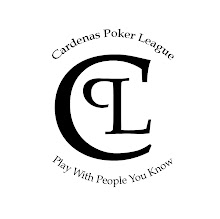Editor's Note: This is the second post in our "Suck Out!" serial. You can read the first posting here.
Staking
This serial is about staking and our real life encounter with it. Before we get too far into the series we should be sure that we are all on the same page as there are a few terms and concepts you should know.
Poker is divided into tournaments and cash games. Tournaments play down to a winner (or until a “deal” is reached) while a cash game is simply ongoing play where you sit down to play and then leave as you wish – while the game continues (or breaks up if it’s 3 am and your wife is screaming at you to shut the hell up so she can get some sleep). Usually, at lower stakes anyway, players pay their own way. If it’s a $125 tournament at a casino or sitting down at a home cash game with $40 the player digs into his pocket uses his own cash.
Sometimes players are “staked”. This is certainly more common for pricier cash games or tournaments, but with online poker it can be for any amount or money level. Staking means that someone else is putting up the money being used. Stu Ungar’s third WSOP Main Event (ME) win in 1997 is, perhaps, the greatest story about staking.
For years Ungar had abused cocaine and led a self-destructive lifestyle. The 1980 and 1981 back-to-back ME winner had reportedly gone from broke to millionaire to broke 3 or 4 times. His poor decision-making in his life meant that he had barely played in the WSOP since 1991. But then April 1997 rolled around. Stu wanted to play again, redeem himself. His bankroll had other plans. Stu was broke. Billy Baxter, a close friend of Ungar’s, offered to stake him in the Main Event and Ungar was able to register minutes before start time, the last player to register for the tournament. Stu went on to win his third WSOP ME Title.
So, in staking, you have someone who provides money, or invests, in a player. The one with the money is called a backer. The player, or the one being staked, is typically called a “horse”. The backer and horse come to agreement on the terms of a staking including money splits, playing requirements and any other conditions.
Staking is often a losing proposition in the short term in tournament play. A horse may go several tournaments without cashing. As a result, many stakings include a “make-up” or “cake” clause. Simply put, a make-up clause means that if a horse loses an initial stake – say a $1500 WSOP tourney buy in that the player busts out of before cashing – then the player will need to make up that $1500 the next time the backer stakes him. For our example, say the backer decides to stake the player for a second $1500 tourney. This time the player cashes in the amount of $5500. Rather than splitting the $4000 profit from this tournament the player needs to “make up” the previously lost $1500 due to the cake clause they had in place. That means the actual split is on only $2500 after the player makes up for the other $1500 he lost.
For “Suck Out!” the total stake is $55 to be used in 5 - $11 tournaments. The tournaments may be multi-tables or sit-n-goes: horse’s choice.
Editor's Note: Look for regular postings (every few days) as we work through the stake - next post: "The Stake (A Backer's Perspective)". We'd love to hear your comments and thoughts as well.
Subscribe to:
Post Comments (Atom)





No comments:
Post a Comment